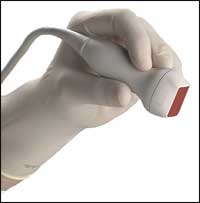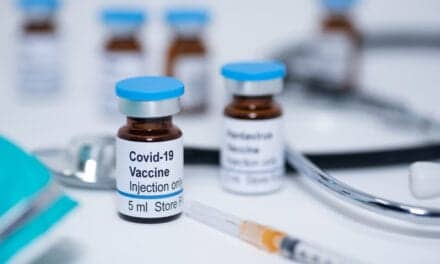Brisbane, Calif.-based Caption Health shared that its Caption AI ultrasound technology is being utilized by the United States Naval Medical Research Center for the second phase of its COVID-19 Health Action Response for Marines (CHARM) study, now underway.
The first phase of the CHARM study, conducted with the voluntary participation of 1,848 recruits, saw results published in The New England Journal of Medicine last fall and detailed the efficacy of public health measures to control the transmission of SARS-CoV-2, the virus that causes COVID-19. The second phase of CHARM is expected to involve up to 3,500 participants before its conclusion and focuses on the emergence of possible health issues both during and after recovery from SARS-CoV-2 infection.
“Cardiac ultrasound is a proven diagnostic imaging technique that provides valuable information about heart structure and function,” says Randolph P. Martin, FACC, FASE, FESC, chief medical officer at Caption Health, cardiologist, and a U.S. Army veteran. “However, it typically requires extensive training to be able to adequately acquire and interpret images. With Caption AI, Navy Medicine can deploy cardiac ultrasound at scale and put the power to capture and interpret these images into the hands of Corpsmen. This will allow not only the U.S. Navy, but the world, to have a better understanding of the cardiovascular impact of COVID-19.”
Due to the demographic makeup of their organization and projected size of their study cohort, Navy Medicine can provide key insights into the spread and effects of COVID-19 that would otherwise be difficult to obtain. Crucially, the CHARM study is able to focus on young adults who work together in close quarters while adhering to strict social distancing and face mask adherence protocols.
“While we remain hopeful that vaccinations mean there is a light at the end of the tunnel as it relates to further SARS-CoV-2 infection risk, there are millions of people around the world who have contracted COVID-19 that may suffer long-term effects as a result,” says Yngvil Thomas, head of Medical Affairs & Clinical Development at Caption Health. “Understanding those effects early will help researchers develop therapies and inform the type of care that healthcare professionals provide. Navy Medicine is uniquely poised to help us understand a key demographic group, improving our understanding of cardiac risk and other potential long-term impacts of COVID-19.”
Featured image: U.S. Navy Hospital Corpsman 3rd Class Victoria Diaz, with the Naval Medical Research Center, conducts an ultrasound of a Marine participant using Caption AI with the COVID-19 Health Action Response for Marines (CHARM) study on Camp Johnson. (U.S. Marine Corps photo by Sgt. Jesus Sepulveda Torres)






